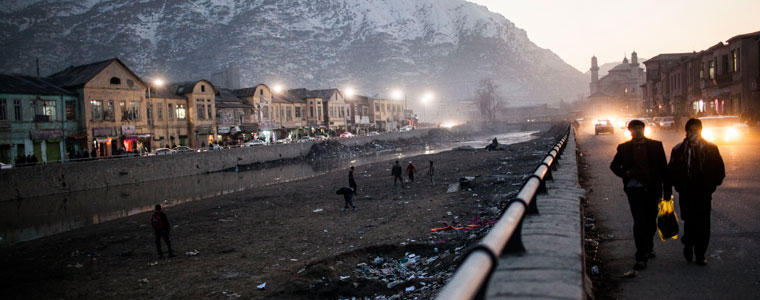
“Trustable” presidential elections will be the linchpin for Afghanistan’s transition in the next two years, according to Fawzia Koofi, a member of Parliament and chairman of women’s affairs in the chamber.
“Before we have the military transition in 2014, it’s very important to complete the political transition,” Koofi told a roundtable audience at the U.S. Institute of Peace (USIP) in Washington on Feb. 11. She was the first female second deputy speaker of Parliament in the country’s history. She was re-elected to Parliament in 2010, and has announced her intention to run for the Afghan presidency in 2014.
Afghans feel burned by the lingering questions about the legitimacy of the last presidential elections in 2009, she said. Achieving credibility this time will require not only security but also strong organization and oversight of the election, women’s active participation and more inclusive and streamlined negotiations with the Taliban that are occurring on the side.
“We have never experienced in our history [the authority] to remove people from power through democracy,” she said. Instead, they usually “fall in love” with power and refuse to step down. “Elections are not for the sake of having elections. Elections are for having change.”
The U.S.-led military coalition has set the end of 2014 as the date for withdrawing most of its troops. The U.S. is negotiating with Afghan officials in hopes of reaching an agreement that would allow a small contingent to remain behind for counterterrorism operations and training for the Afghan National Army. The threat of a resurgence of Taliban violence as troops of the North Atlantic Treaty Organization and its coalition allies reduce their numbers is among the concerns as Afghanistan prepares for the scheduled April 2014 elections.
Uncertainty over the transition risks encouraging “hedging behavior” among prominent Afghans to either make deals that might undermine a legitimate transition or leave the country entirely.
Hossai Wardak, who joined USIP this month as an Afghanistan senior expert for six months, recalled interviewing a girl in one of the districts of Badakshan Province and asking why she wasn’t attending the new university nearby. The girl responded, “What’s the point, when I know the Taliban are going to come back and I’ll be forced to go back home,” Wardak told the roundtable audience.
The High Peace Council, which is responsible for guiding peace talks with the Taliban, was selected with the understanding that it would consult with the population from time to time, but that has been rare, said Wardak, who has worked extensively with the United Nations within Afghanistan and outside and most recently worked for the organization Equality for Peace and Democracy. Women in particular are underrepresented both on the council as well as in interactions with the panel, she said.
What approaches do you think would work to ensure a credible political transition in Afghanistan through the 2014 election? Tell us your thoughts by submitting a comment below.
Viola Gienger is a senior writer at USIP.



